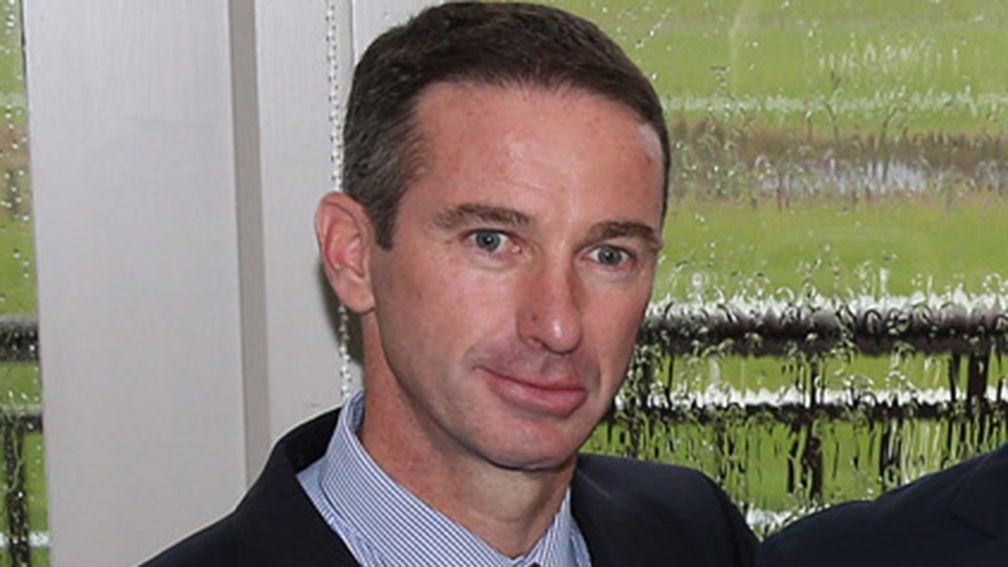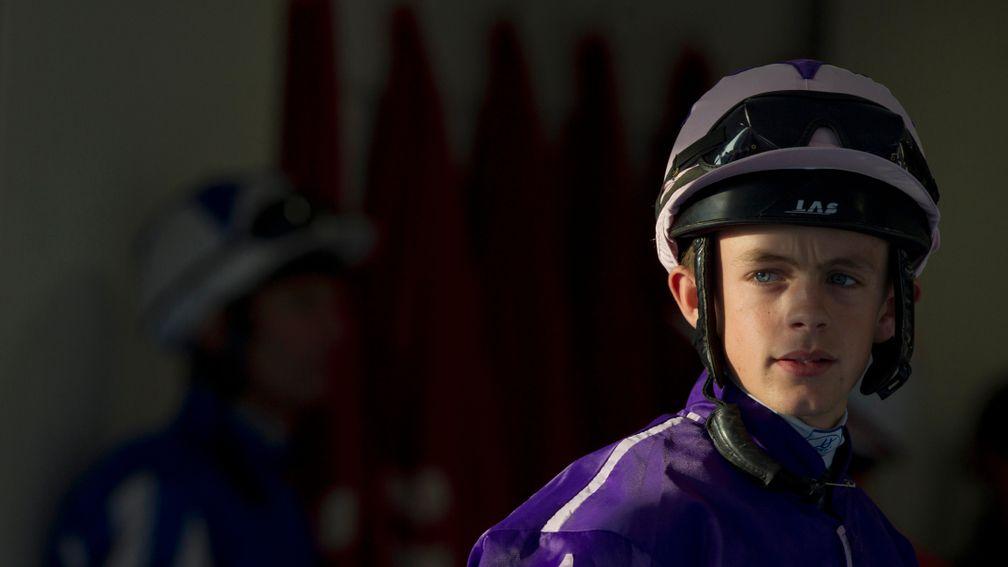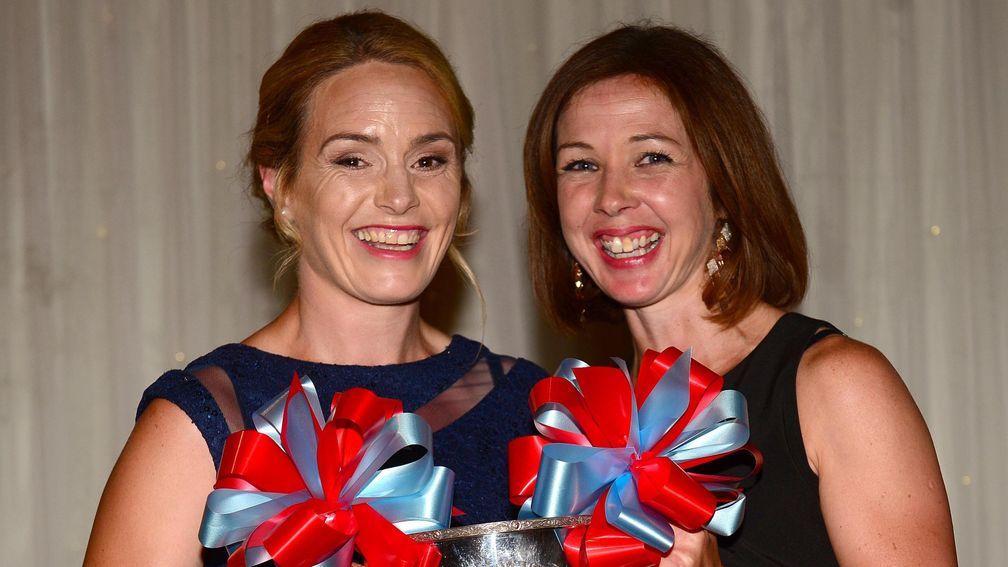Irish jockeys' association boss backs regulator's hard line on cocaine use

The Irish Jockeys' Association secretary Andrew Coonan has backed the regulator’s commitment to taking a hard line on riders who test positive for cocaine by focusing on the threat to others if a jockey's judgement is impaired by recreational drug use.
Coonan, a solicitor who rode as an amateur, represented 7lb claimers Conor Murphy and Damien Melia at Thursday’s Irish Horseracing Regulatory Board referral hearings.
In the wake of concerns that the IHRB is taking unnecessarily draconian steps by increasing the entry point for cocaine breaches to five years, Coonan was keen to stress there is a clear route for riders to return within a shorter time frame once they engage in the recommended process.

Murphy, an amateur rider who tested positive on the day he won the hunter chase at Cork aboard Carrignagapple on December 18, was handed a five-year ban but can reapply for his licence in 18 months once he satisfies certain criteria.

Melia, an apprentice, can reapply nine months into the four-year suspension that was prompted by his positive test from Gowran Park on October 15.
"I think people need to read below the headline of a five-year ban," Coonan suggested. “Yes, the ban will be five years for this type of offence.
"However, as was the case on Thursday, if after 18 months you have shown that you have engaged in the process, have satisfied the IHRB that it was inadvertent, one-off or out of character and is unlikely to happen again, then they will consider restoring your licence.
“So, while on the face of it those penalties look to be extremely harsh, the reality of it is it still does leave the door open for a rider to represent his situation within a reasonable time frame. Is nine months or 18 months a reasonable time frame? I would say it probably is.”
Elaborating on the five-year figure, Coonan highlighted the issue of rider safety as the underlying objective. "The fact an amateur rider was given a five-year ban reflects the thinking of the panel," he said. “What I take from that is that this is something that the IHRB is taking very seriously, and that’s as it should be.
“It sends out a very clear message this is something that is taken very seriously, including by other riders. It is a cause for concern for any rider if they thought that they were in a situation with another rider who was less than fully capable of managing themselves in what are very volatile and dangerous race scenarios already.
"If you are to take any positive out of those cases on Thursday, it is that in Ireland the testing is such that it is likely you will be caught if you are taking prohibited substances, and that’s a good message that riders need to understand.”
In publishing the official report for Thursdays referrals, which featured a third hearing for a cocaine positive that is still pending, the IHRB stressed jockeys can expect to serve at least 18 months of the new five-year entry level sanction.
The regulator noted it was the second time in 14 months that three referrals involving such breaches had to be heard on the same day.
When it doubled the entry point for cocaine breaches from two to four years in 2017, it had described the spike in positives as "unacceptable for racing" and repeated that line in Thursday’s statement.
In total in 2018, five positives tests were returned for the class A substance, an unprecedented figure that took the number to 13 in four years during a time when there was not a single alcohol-related breach.
"It is not necessarily the case that such a ban will always be partly suspended," the IHRB statement said of the five-year ban, "but this will remain an option where the evidence is such that rehabilitation should be encouraged on the facts of the individual case.”

Dr Jennifer Pugh, who has succeeded Dr Adrian McGoldrick as the IHRB’s chief medical officer, echoed Coonan’s sentiments and stressed education and support are there for those who need it.
“Education must continue,” she said. “Firstly into the responsibilities of a professional athlete as to what goes into their body, inadvertently or not. And secondly into the harmful nature of drug taking, be that alcohol, performance-enhancing drugs or recreational drugs, and the risk they place on themselves, their colleagues and the sport as a whole.
"For many riders who are committed and willing to engage with the services, they are often allowed to return sooner and have benefited hugely from this time in terms of education, knowledge and rehabilitation.
"Riders continue to have the full support of the IHRB and the medical team for the duration of any ban, once they are willing to engage.”
Read exclusive previews from 6pm daily on racingpost.com
Published on 11 January 2019inNews
Last updated 19:06, 11 January 2019
- Merci Olivier! No final winner for Olivier Peslier but the world of racing unites in saluting the end of a great career
- The latest edition of the Racing Post is available to read online now - here's how you can access it
- How Smart View recorded a 76 per cent profit at the Cheltenham Festival
- Smart View is available on the Racing Post app - how to read the revolutionary new racecard
- Levy reform talks 'accelerating' as clock ticks down to April deadline for agreement
- Merci Olivier! No final winner for Olivier Peslier but the world of racing unites in saluting the end of a great career
- The latest edition of the Racing Post is available to read online now - here's how you can access it
- How Smart View recorded a 76 per cent profit at the Cheltenham Festival
- Smart View is available on the Racing Post app - how to read the revolutionary new racecard
- Levy reform talks 'accelerating' as clock ticks down to April deadline for agreement